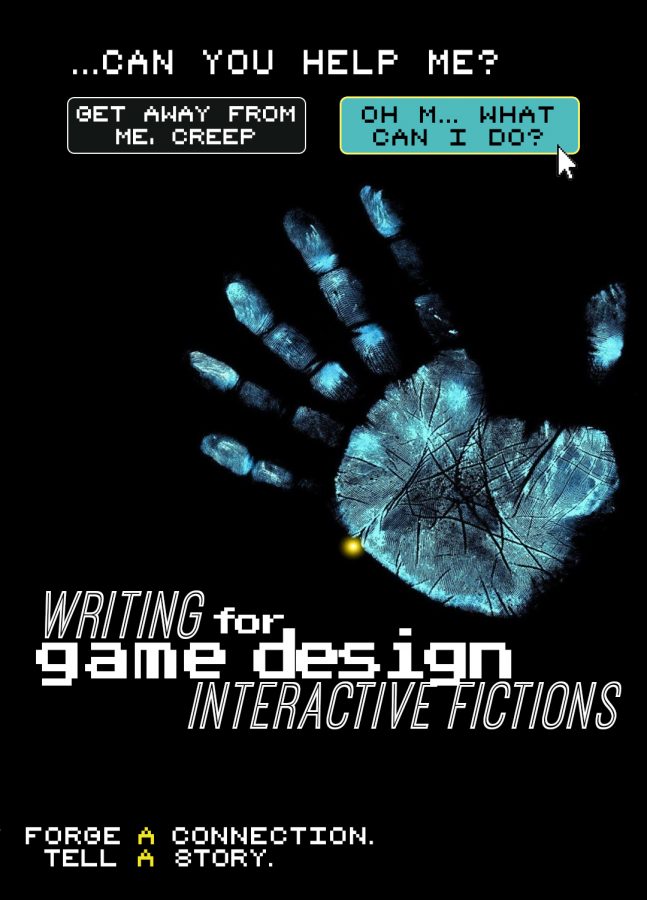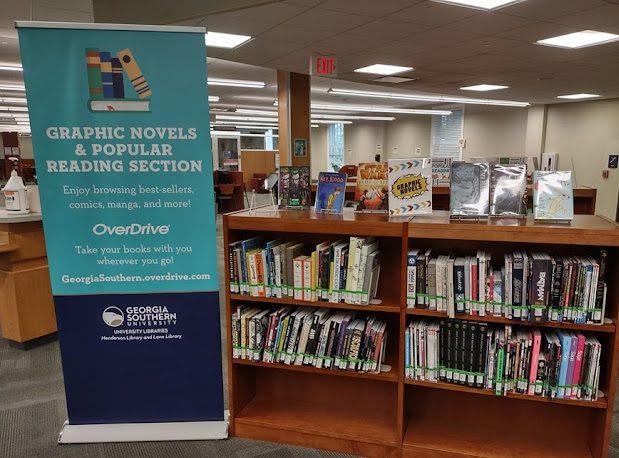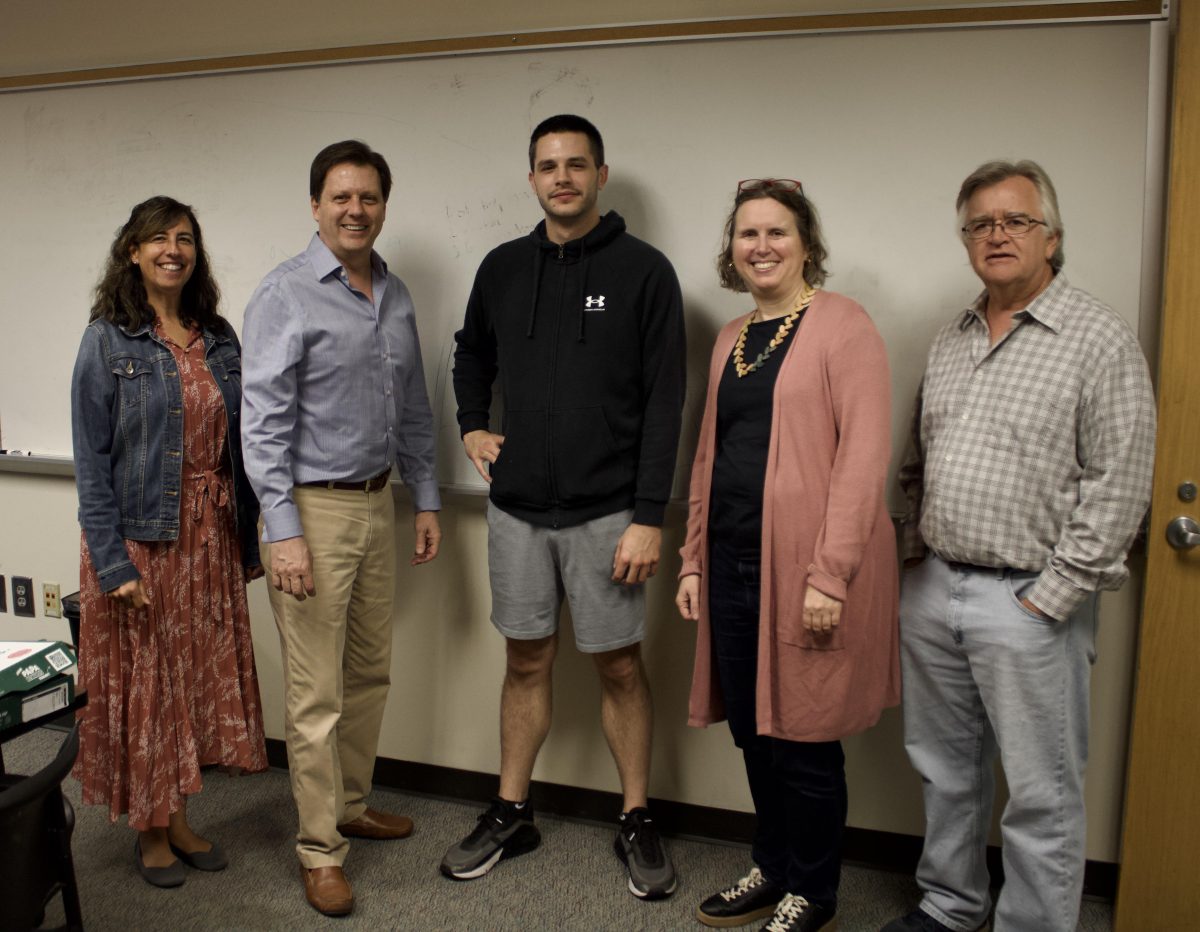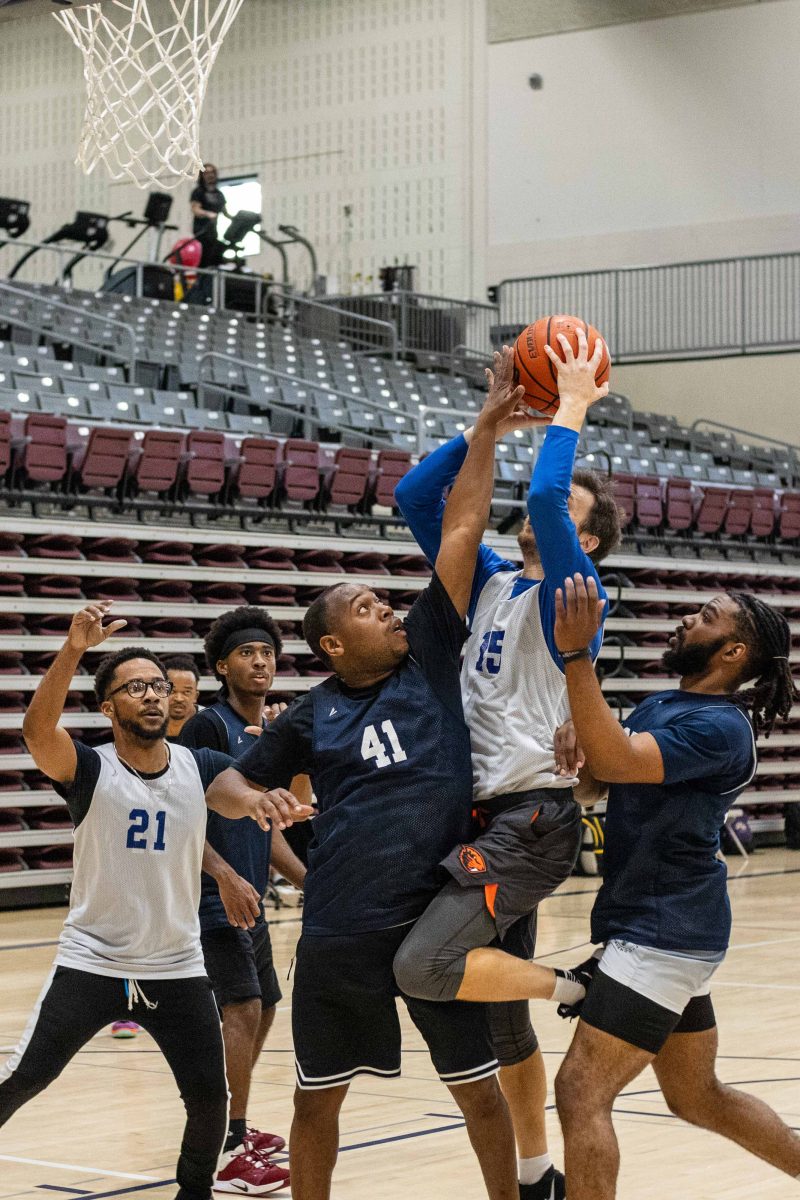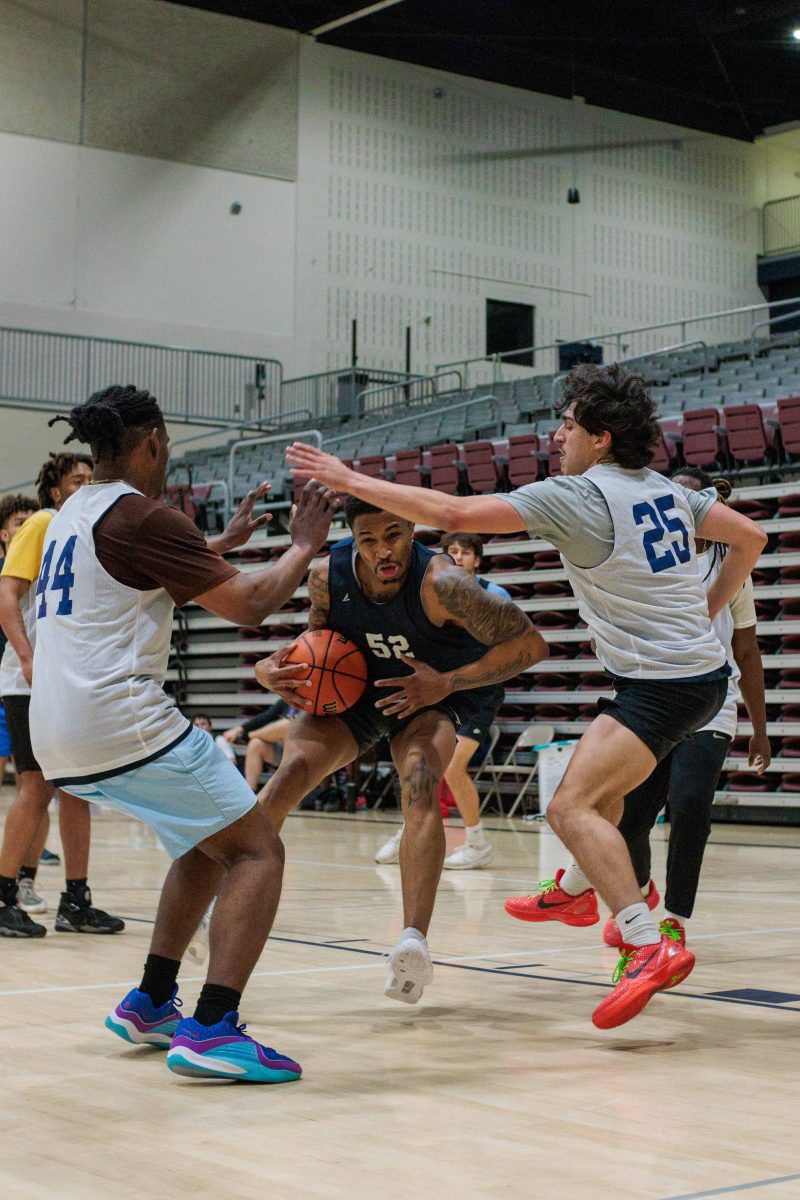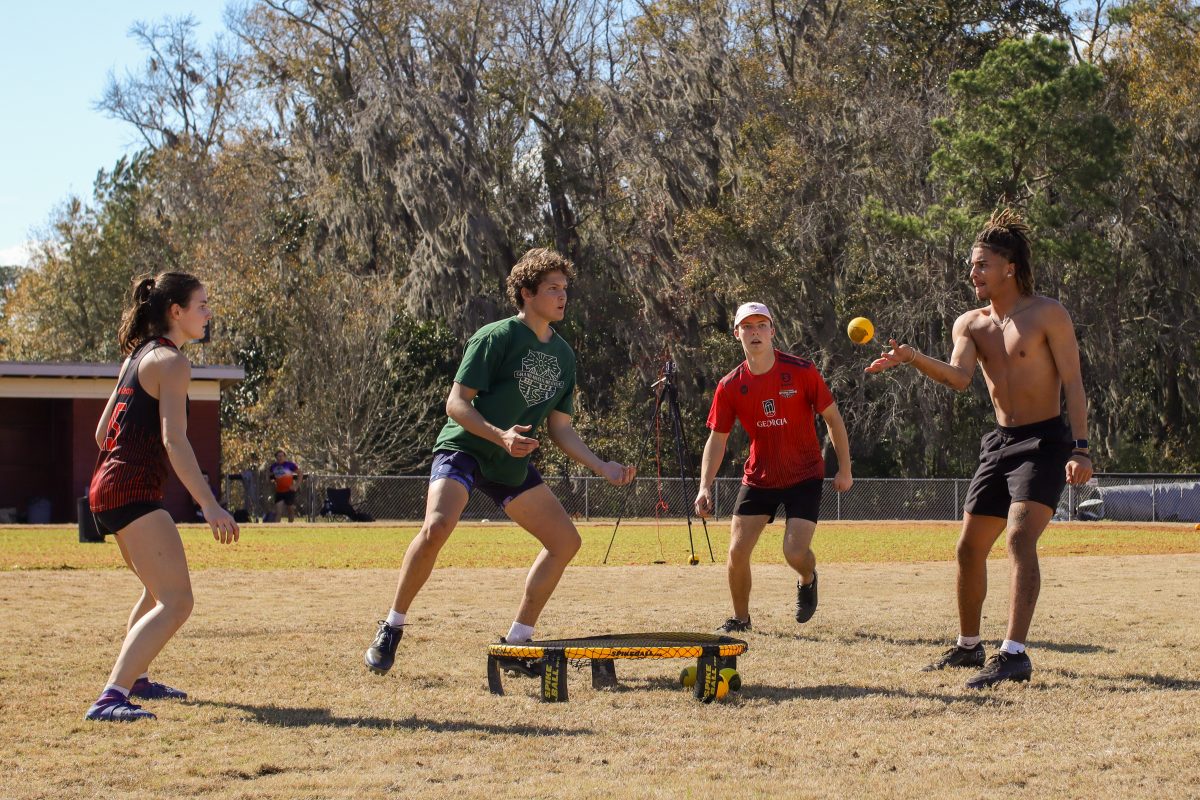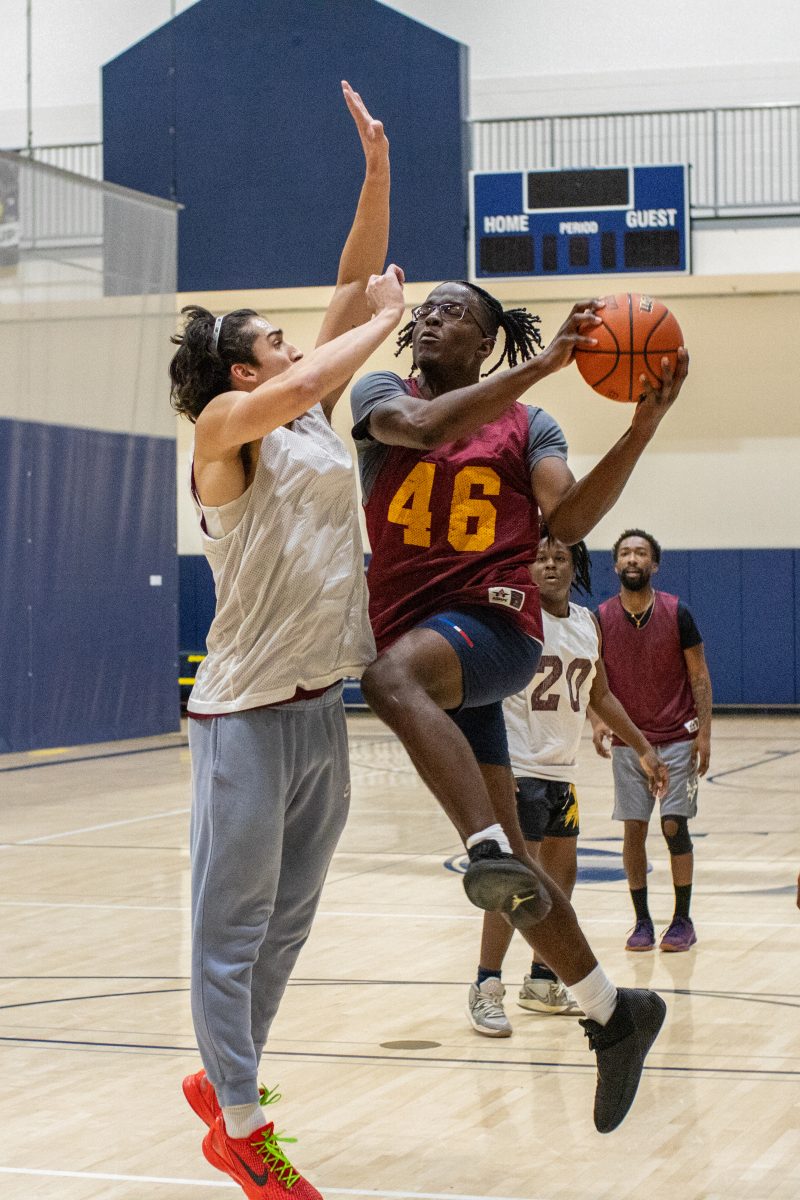TERESA DURHAM, STAFF WRITER
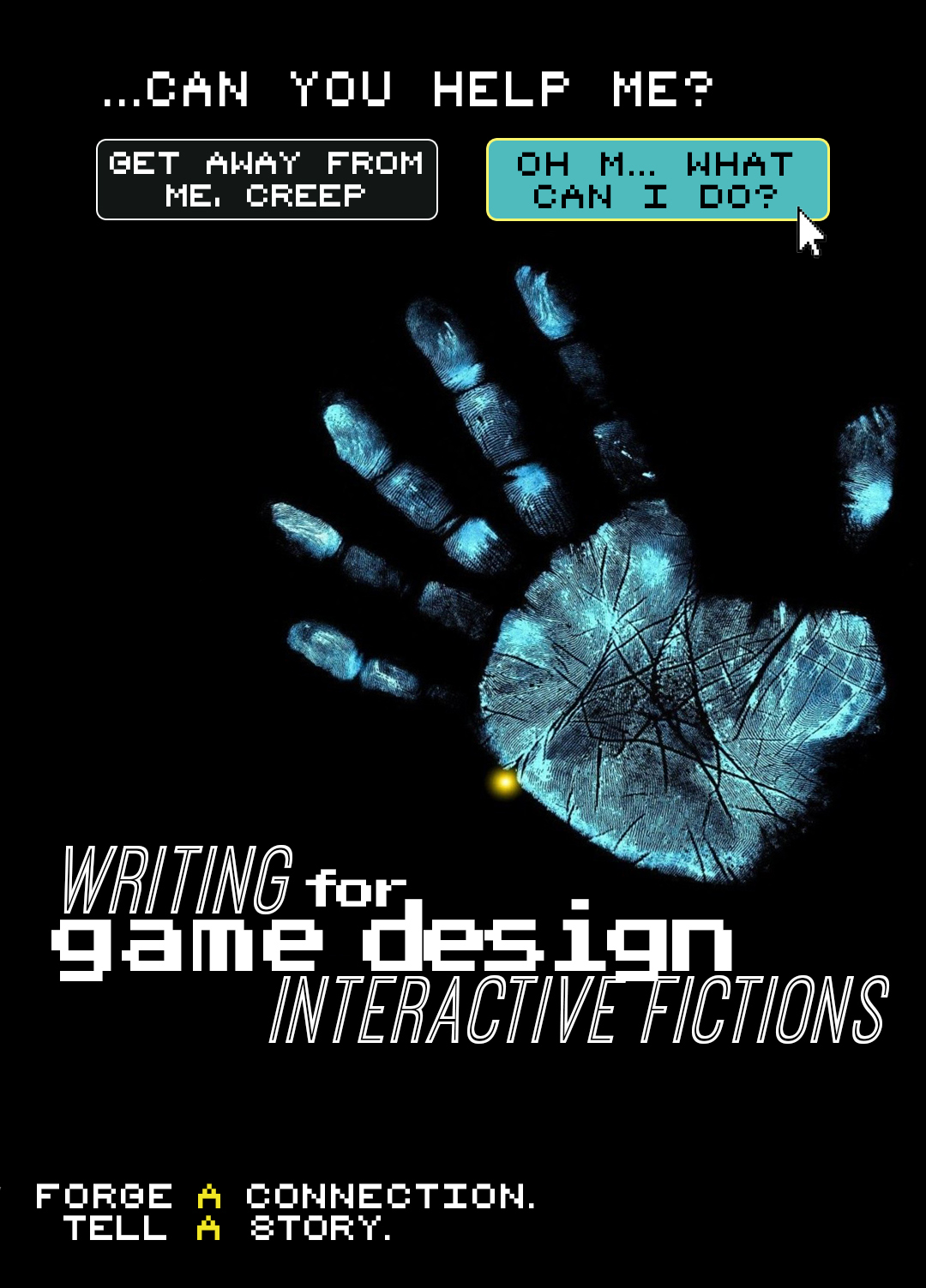
This semester, Drs Robert Terry and Lisa Dusenberry are co-teaching the prototype English 5000 course “Writing Strategies for Game Design” for undergraduates and graduates alike. So far, it’s been a success.
Though it is hard for students to complain about analyzing “BioShock,” “Mass Effect,” or “The 7th Guest” for class credit.
Using the computer program Twine, “an open-source tool for telling interactive, non-linear stories,” the class will create two games throughout the semester to demonstrate knowledge of different writing strategies used by game developers.
The first week of the course saw students evaluate a digital game of their choice for the issues or effective balance of the ludic (the game’s rules) and narrative elements. The opportunity to explain why they love or hate a game made the assignment enjoyable.
Dr. Terry believes that this is an unexplored area of creative writing for Armstrong. At one point, he realized it did not benefit just that section of the English degree.
“. . .[T]his is also really useful for the Technical Writing track as well. Because it’s an XML-based language, it’s really relative to the type of work tech writers are doing these days.”
This is not the only practical application of game development in the English field. Games like “Play Choice Texas” and
“Rust” can cause players to be exposed to social issues in a new light by being assigned a different race, gender, or being put into a situation that one personally may never face.
Dr. Dusenberry has had many students cite game experiences for serious conversations in her Business and Technical Communication course.
“. . .[M]ore and more people have had really important experiences with games and have grown up with them.”
The students in Writing Strategies for Game Design are very enthusiastic because they get to converse about games in a formal setting.
“We’re playing games and talking about games and we’re actually doing more writing and work than most other classes, but it’s hard to mind it because it’s part of something near and dear, and good fun. I hope they continue teaching things like this,” says Justin Barnett, a non-traditional liberal studies major.
For gamers, this is heaven. For non-gamers, this may sound intimidating, but never fear, the professors have your back.
“One of the reasons we started the class like we did is because we have all different levels of experience with games… We needed a way to get those people experience before we start writing,” Dusenberry said.
There is always the possibility that the course will not continue, but Writing Strategies for Game Design has some advantages.
“Getting to co-teach it for the first time helps you test out things you would never try because your colleague has more experience with it and can help with problems…” Dusenberry explained. “The first time you’re trying to do multiple things. We’re trying to teach people the strategies for writing the narratives and we’re going to be trying to teach people the technology.”
The program Twine has been a beneficial course tool. Melissa Ford’s textbook, “Writing Interactive Fiction with Twine,” describes the program in detail but also glosses over the majority of writing strategy do’s and dont’s.
There is a lot of speculation amongst the students that the course will be placed on the catalogue as a permanent course, which is Dr. Terry’s hope.
“Right now, it’s a prototype, but my hope would be that it is the foundation of building more interesting things along this way,” Terry said.




